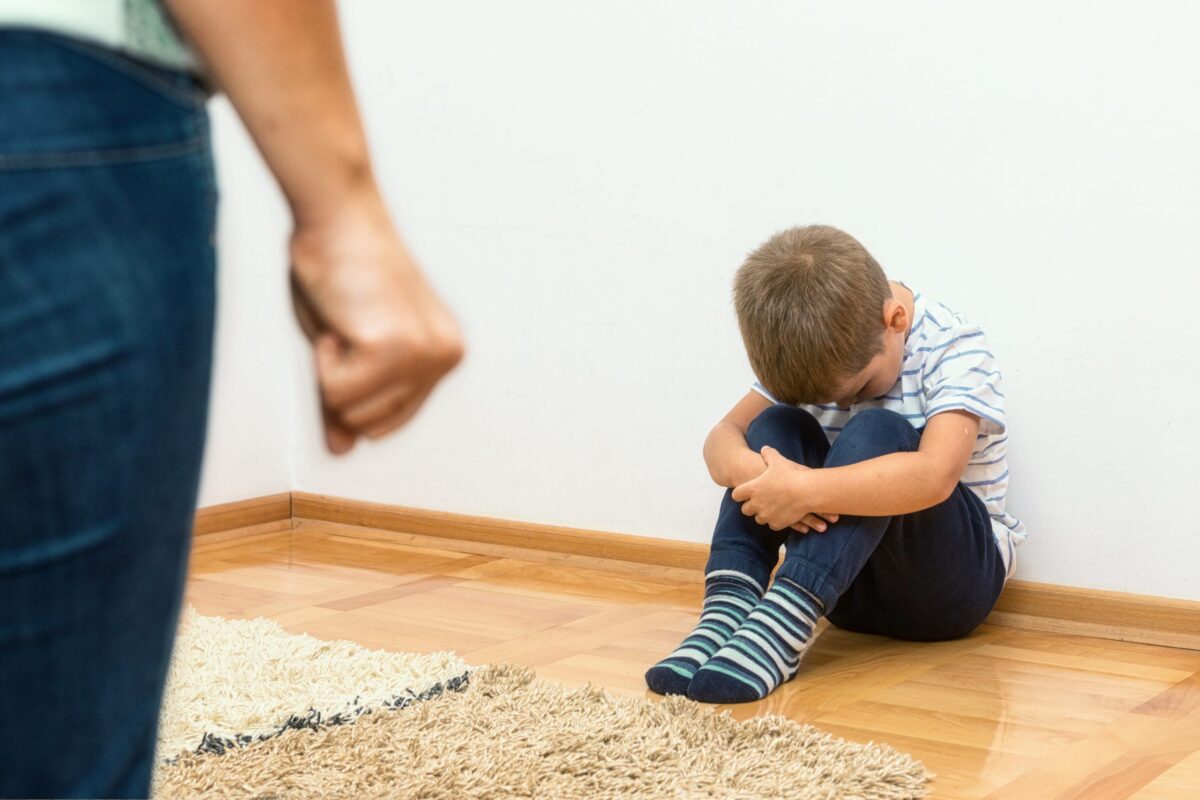My father is dead.
I learned the news three weeks ago. He had been dead for a year and a half. Nobody had thought to inform me about this until a legal matter forced certain third parties to inform me.
My father was a monster. He choked me. He bit me. He pressed the embers of his unfiltered cigarettes into my pale sensitive skin. He saw a scrawny underfed kid, a bright and budding soul that he had sired, and he knew that I was white trash. He memorialized it with his abuse. I wore long-sleeved shirts to school to cover up these burns and bites. I got into fistfights with kids who bulled me. Kids unaware of what was happening to me at home. The girls, at least, were sweet and sympathetic to my shyness and they detected my sensitivity. Women have always understood me better than men. Most of my friends now are women.
I returned home from these scuffles with black eyes and gashed knees and scrapes and bruises. It’s amazing in hindsight how both of my parents looked the other way. Why did my mother stay with him? Well, I’ll deal with her when she dies, as we all eventually do. She had her reasons and she’s a piece of work too. People who have never taken the time to get to know me have sometimes declared me a piece of work. I can’t say that I blame them.
We are all some inexact sum of our parents, but we are different. It took me twenty-five years to learn that.
I have never wanted anyone to feel sorry for me, but I have insisted on respect. You would too if you had lived what I went through. I despise being a victim and I am often fierce towards malefactors to ensure that I am not a victim. I would rather burn a bridge with the fiercest fire rather than endure any further maltreatment. I’ve had enough abuse and hurt to last four lifetimes. I wouldn’t wish any of the pain I carry on anyone. But what makes my vengeful impulses any different from my father burning me with cigarettes? These terrible lessons I practiced in most of my adulthood were planted by the people who were supposed to take care of me. Who were supposed to love me. I sought father figures in my adulthood. And when these men wouldn’t do, I turned to dead male writers to learn how to become a man. An imperfect resort, but books have always saved me during every downward spiral.
I wasn’t much of a man for a very long time. Not until after forty, when I lost everything and I was left for dead by those who were closest to me and I rebuilt my life. I’m still not sure where my stubborn tenacity comes from. I suppose it emerged because it was the only way I knew how to survive. Or maybe it was a better version of the unearned stubbornness and the shameful entitlement that my indolent do-nothing sad sack of a father always had. Knowing I could never count on anyone other than myself. Or so I thought at the time. I have since learned otherwise. I have learned that more people love me or wanted to love me than I was willing to perceive or admit. And for the ones who I scared away, I am so sorry. You didn’t deserve that. I am still trying to understand why anyone would love me, but I am getting better at accepting that people do love me. I built a new family from my friends. I remain grateful every day that I have this. I remain especially grateful to those who stuck it out with me for the long haul and who continued to see what even I couldn’t see. Blindness and obliviousness to my positive qualities has been the way I have always survived. Because I truly didn’t want to become like him.
Before I learned that my father was dead, I had not seen or spoken with my father in more than two decades. When I told my closest friends that my father had died, I was stunned when they reached out to me and they let me ramble about my conflicted feelings. Boisterous friends spoke in soft voices that I had never heard before. I told them, “No, he hurt me. He abused me. He warped me. He taught me the wrong lessons. He was a monster. He was an asshole. But he was still my father.” And they sweetly offered me drink and pot, which I politely declined. Because I had to consider all this with sober eyes. And on the night that I learned that my father died, I went to the karaoke bar and sang all the songs that he had once sang to me in his better moments. I hadn’t heard many of these songs in more than two decades. Corny songs from the 1970s. I somehow still knew all the words by heart. And I cried as I sang.
At night my father would drink. And I would be beaten again at night. My father at night. The kids during the day. There was a shed in the backyard of one of the homes we lived in and I recall nearly passing out from the redolent waft from all the empty beer bottles horded there. I binge drank as an adult to deal with my demons. And I was often mean and unpleasant. Like my father. Though not like my father. I didn’t physically abuse anyone. I was more interested in hurting myself. There was something strangely magnetic about creating scorched earth. These days, I don’t drink nearly as much as I used to. A few beers on the weekend and frequently none at all. But I do have to be careful.
His brain wasn’t all there. He had been in a terrible car accident because he refused to wear his seatbelt. And it impaired him. Fremont’s answer to Phineas Gage. The abuse escalated not long after this. But even before this, my father hurt me. When I was an infant, he tried out a homemade baby formula that sent me to the hospital and nearly killed me.
He was tall and lean. Like me. Although I’m still saddled with the belly on my mother’s side that I can never entirely melt down with brisk exercise. He was near-sighted and wore glasses. Like me. While my expressive face largely came from my mother’s side, the highly focused and contemplative look I have is definitely his. I inherited his reedy voice, which helped me in various creative capacities as an adult, and helped to cancel out some of the regrettably forceful qualities of my voice that I inherited from my mother’s side. But I suppose it all works out in the end.
The memory of his nimble hands. Like mine. But worse. He played the guitar. I learned to play the guitar because he had played the guitar. I became a better guitarist than he had ever been. And I have written countless dozens of songs on that guitar. But those same hands tried to suffocate me. Those same hands grabbed a pillow and smothered my tiny face. Those same hands delighted in the horrific sounds I made when he choked me. I still remember all the terrible times in which I couldn’t breathe and I suspect this is one of the reasons why I never entirely took to neckties as an adult. (Bright floral shirts? Happy red shoes? All the way.)
So how I can still mourn him? Stupidly. Maybe I mourned what I didn’t have.
When I learned that my father had died, I began making calls. I wanted to know when and why and how. And the details were sad. Dementia. 71 years old. He was not the only family member to suffer from dementia. Is this my future two decades from now? Jesus Christ, I live by my wits. Physical decline. No real reason to live. He had accomplished nothing. His domicile was little more than furniture pocked with cigarette burns. I guess he always needed some object to burn, even if it meant objectifying his own blood. An aspiring writer. But I actually got published in magazines and newspapers. He never got to tell his stories. But against all odds, I did. When it was clear that none of my work was ever going to be published in book form, I wrote scripts, created a rep house of dozens of actors, and produced my own audio drama and won awards. My seven part epic tale, “Paths Not Taken,” which spans nearly thirty years, is the best thing I’ve ever done in my life. And I still get emails from people about it. I hope I can do better.
I telephoned my father’s brother, who I had not seen or spoken with since I was a child, and asked him questions and told him that my father abused me.
He refused to believe this.
He blamed me for cutting off ties. He blamed me for never reaching out to my father or my father’s side until he was dead. Somehow it was all my fault. When my father’s brother gave me a sad story about how my father couldn’t find work, what I didn’t tell him was how I had applied to 1,500 jobs during a rough time and somehow didn’t give up until I landed a decent paying job. Not only was my father determined to be a victim, but his family was determined to paint him this way.
I asked my father’s brother if he had ever thought of me.
“To tell you the truth, he didn’t think about you at all.”
And that’s when I knew I couldn’t speak with my father’s brother again.
Here’s what my father couldn’t do and I did. I learned how to be humble and gentle and empathetic and positive. I learned to love in ways that were beyond him. I learned how to take care of others, to put aside my own problems to be there for other people when they needed me, and to do any number of secret good deeds which nobody knows about.
I want to be clear that I’m no hero. But I did something that a lot of people couldn’t do in my situation. I became a better man than my father. And I’m only just getting started.

